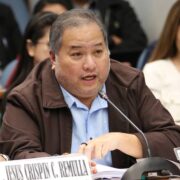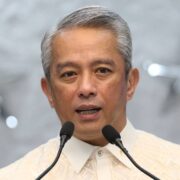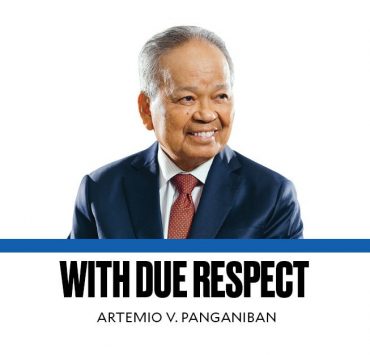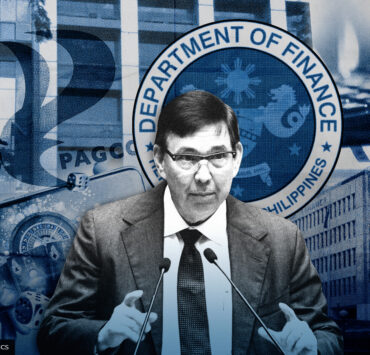Undoing dark legacy

Reelected Leyte 1st District Rep. Ferdinand Martin G. Romualdez and Tingog Party list Representatives Andrew Julian Romualdez and Jude Acidre filed a bill on June 30 that seeks to reform the Philippines’ decades-old bank secrecy law, which happens to be one of the most restrictive in the world. House Bill (HB) No. 7 aims to amend Republic Act No. 1405, or the Law on Secrecy of Bank Deposits, by allowing the Bangko Sentral ng Pilipinas (BSP) to check bank deposits “in specific circumstances,” when it has reason to believe that such deposits are connected to acts of “fraud, serious irregularity, or unlawful activity.”
Republic Act No. 1405 was enacted in September 1955, or 60 years ago, and is clearly in dire need of updating to be able to address current needs and realities. In the 19th Congress a similar bill had been certified as a priority measure by the Marcos administration, but, alas, the Senate failed to enact a counterpart measure.
Through the years, that impregnable bank confidentiality has proven to be a boon for criminals and corrupt individuals to hide and launder the illicit fruits of their wrongdoing. In 2021, the International Monetary Fund issued a report calling out what it described as the Philippines’ “unusually stringent bank secrecy law,” which “limits BSP’s legal powers for effective prudential supervision and could impair financial stability and development.”
Or, as Romualdez bluntly put it, “In its current form, the law is being used to shield illegal acts such as money laundering, tax evasion, and corruption.”
With Romualdez poised to retain the Speakership, the Marcos administration should put the necessary muscle behind HB No. 7 so that it gets a chance of being passed in both chambers of the incoming Congress.
Greater transparency
But if the intent, as articulated by the Speaker, is that “the Philippines should no longer be a safe haven for dirty money,” then such measures designed to foster greater transparency and accountability should go much further and more broadly.
Specifically, any reform opening up bank deposits to greater scrutiny should cover not only financial institutions, businesses, casinos, and the like, but, more crucially, those of public officials and government employees.
Senate President Francis Escudero recently refiled a measure that would require all civil servants, except those in an honorary capacity, to waive their rights under Republic Act No. 1405, to ensure, he said, that no government worker, regardless of rank, may use their position to steal money from the government.
The banking law’s “rigidity has enabled corruption to thrive under the guise of confidentiality,” noted Escudero. “We are the last country standing in preserving absolute secrecy. That distinction doesn’t protect democracy but rather undermines it.”
Dire levels of corruption
Sen. Panfilo Lacson agrees, and has himself filed two measures that strip government workers their entitlement to bank confidentiality, including for foreign currency deposits. The measures will “equip government authorities with the necessary tools to effectively investigate and prosecute those who misuse public office for personal gain,” said Lacson.
These are worthy initiatives that deserve both robust legislative backing and widespread public support, given the dire levels of corruption and waste of taxpayer money that have only gotten worse as the national budget has exploded and politicians have found ever more crafty ways of plundering the public till.
Even as the country continues to be kept in the dark by Vice President Sara Duterte’s refusal to account for her office’s disposal of millions in confidential funds, leading to her looming impeachment trial in the Senate, lawmakers have also had a field day redirecting to themselves gargantuan pork barrel allocations — some with P5 billion, others with P10 billion, disclosed Lacson in a recent TV interview.
Defanging the SALN
Opening the bank accounts of government officials and employees via legislative fiat is the way to go considering how utterly ineffective the Office of the Ombudsman has become in holding civil servants to account through their Statement of Assets, Liabilities, and Net Worth (SALN).
Dealing a big blow to the fight against corruption, Ombudsman Samuel Martires took a pickaxe to his very mandate by defanging the SALN, imposing severe limitations on public access to the transparency document required by law to be filed by those in government.
The country is thankfully about to get some measure of relief from Martires’ unfortunate tenure with his retirement in August. The Marcos administration will then be handed a golden opportunity to usher in a new era of clean, honest public service — if it so inclined for it.
This it can do by, first, appointing an honest-to-goodness Ombudsman that will undo Martires’ dark legacy; and, second, by finally making it easier, on pain of law, to pry open bank records and transactions in this country.





















